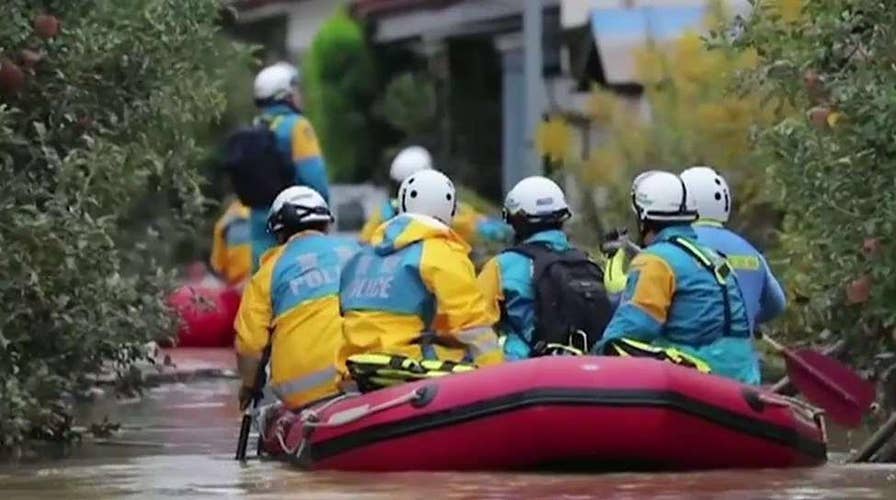Deadly Japan typhoon being called the worst storm to hit the country in decades
Rescue efforts are underway in Japan after deadly Typhoon Hagibis creates widespread flooding and damage; Benjamin Hall reports.
The worst of Typhoon Hagibis may have passed Japan, but the storm has provoked a wave of outrage after an evacuation center turned away two homeless people as it approached over the weekend.
Japanese Prime Minister Shinzo Abe told a parliamentary session Tuesday that the number of deaths tied to Typhoon Hagibis had climbed to 53 and was expected to rise, as at least another nine people are presumed dead. Kyodo News agency, citing its own tally, put the death toll at 69.
As the storm approached over the weekend, two men who tried to go to an evacuation shelter were denied from entering because they were informed they were not ward residents since they were homeless.
“The wind was strong and it was raining, and I wanted them to let me in,” a 64-year-old homeless man told the Asahi Shimbun newspaper.
TYPHOON HAGIBIS KILLS DOZENS IN JAPAN, FLOODS BULLET TRAINS AS MASSIVE SEARCH LAUNCHED
The 64-year-old man told the newspaper he ended up spending the night under a plastic umbrella partially shielded below an underhang from a building's roof.
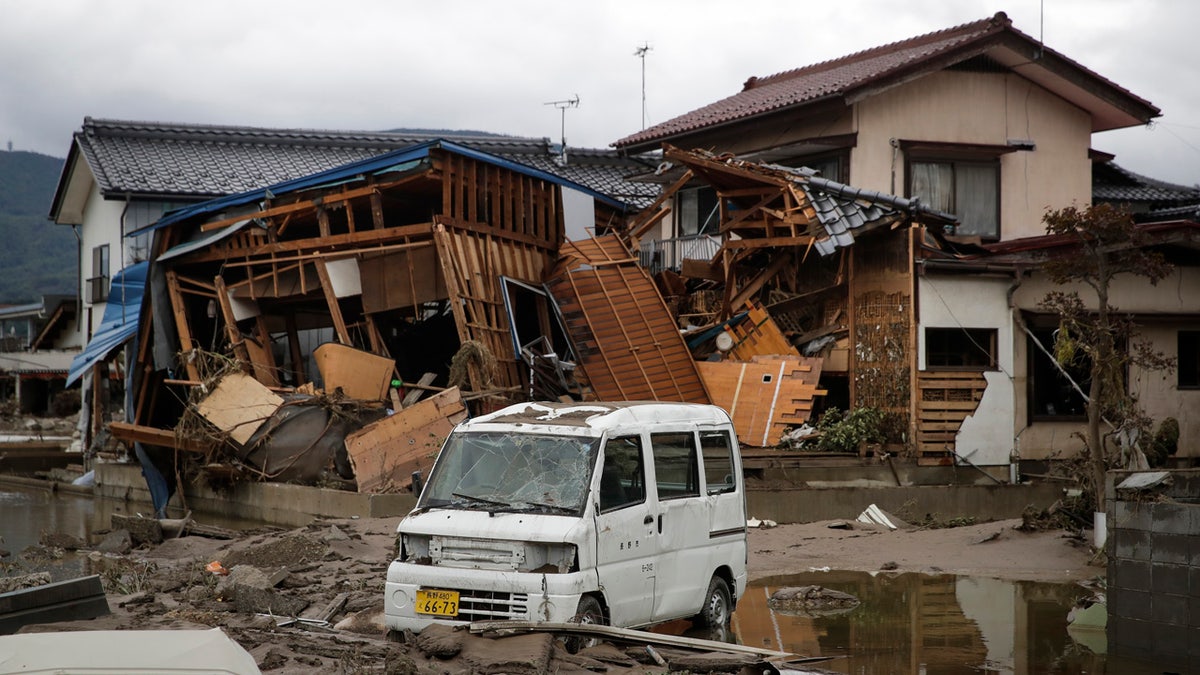
A vehicle sits in front of a home destroyed by Typhoon Hagibis Tuesday, Oct. 15, 2019, in Nagano, Japan. (AP Photo/Jae C. Hong)
Another homeless man was also turned away from the same facility later that day for the same reason, the newspaper reported.
While no deaths have been reported in Tokyo, news of the ward officials denying homeless people entry caused a firestorm on social media and among homeless advocates.
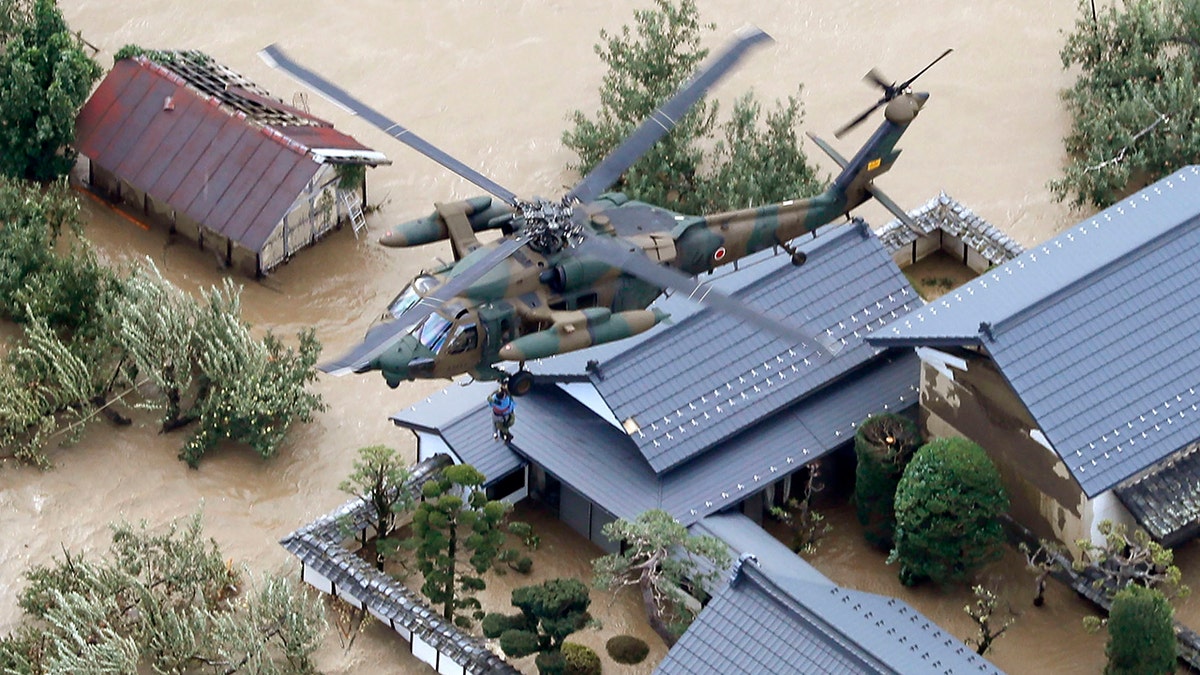
A resident is rescued by a Japan Self-Defense Force helicopter as the house is submerged in muddy waters after an embankment of the Chikuma River broke because of Typhoon Hagibis, in Nagano, central Japan, Sunday, Oct. 13, 2019. (Yohei Kanasashi/Kyodo News via AP)
“Is this a country that’s going to host the Olympics in Tokyo?” one man with the handle @G_takatoshi asked on Twitter, according to Reuters.
The topic also was brought up during a session of the government focusing on emergency response to the storm, with one opposition member questioning Abe about the incident
"We should respect the basic human rights of disaster victims and provide necessary facilities for them," said Yuko Mori of Democratic Party for the People, according to Japanese broadcaster NHK. "That's a basic principle."
ELDERLY JAPANESE WOMAN RESCUED FROM TYPHOON HAGIBIS DIES AFTER FALLING FROM HELICOPTER
Abe replied that evacuation centers should "properly accept all people."
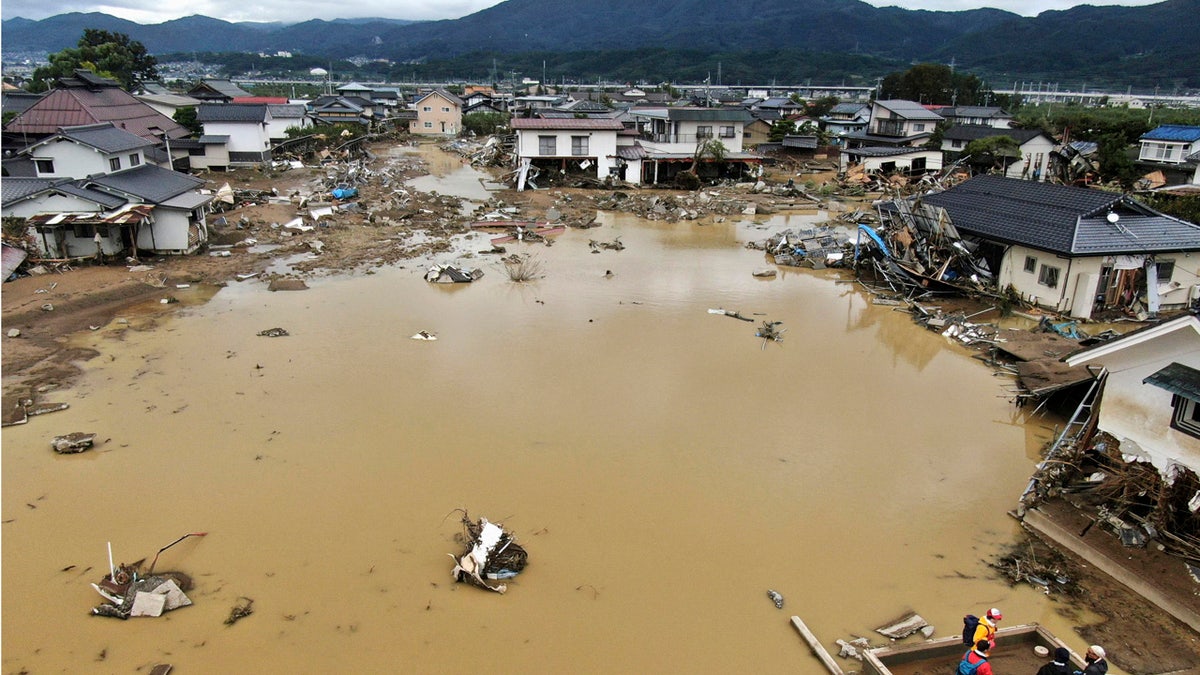
Residential area is flooded after an embankment of the Chikuma River broke due to Typhoon Hagibis, in Nagano, central Japan Tuesday, Oct. 15, 2019. (Kyodo News via AP)
"We will examine what really happened with the local governments and take appropriate measures," he said.
In the Taito ward where the incident took place, officials said Tuesday they would review procedures to help people without addresses.
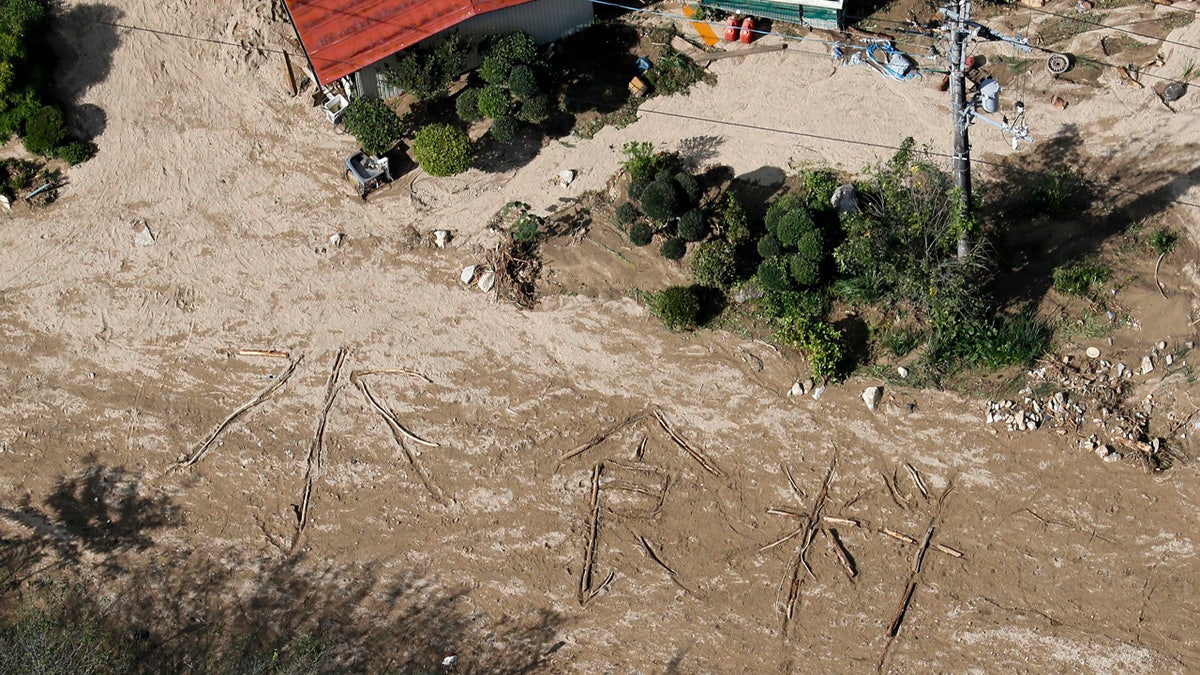
The words " Water, Food," are written on the ground in Marumori town, Miyagi prefecture, Japan Tuesday, Oct. 15, 2019. (Yohei Kanesashi/Kyodo News via AP)
“We deeply apologize that we dealt with people without addresses insufficiently so that they could not stay at the shelter,” the mayor of the ward, Yukuo Hattori, said in a statement on its website. “We will cooperate with related parties and consider measures to support all the people at the time of a disaster.”
CLICK HERE FOR THE FOX NEWS APP
Hagibis hit Japan's main island on Saturday with strong winds and historic rainfall that caused more than 200 rivers to overflow, leaving thousands of homes flooded, damaged or without power. Rescue crews on Tuesday were still searching for those missing, thought to number about 20.
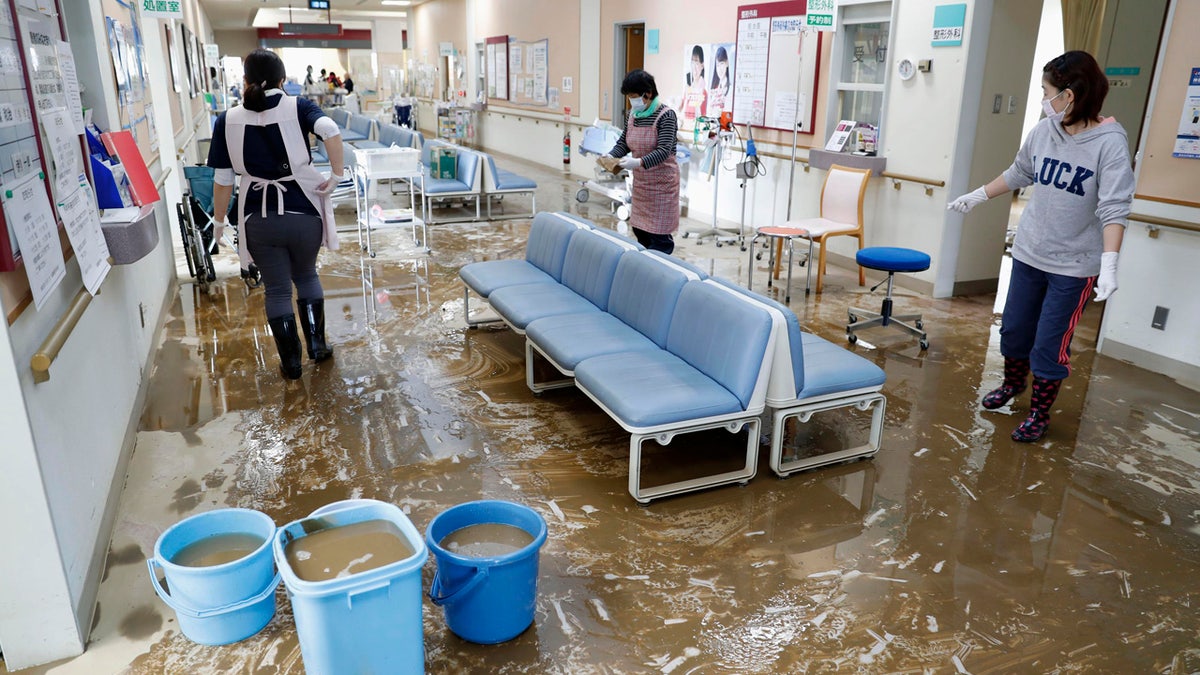
Staff members clean a hospital damaged by Typhoon Hagibis, in Marumori town, Miyagi prefecture, Japan Tuesday, Oct. 15, 2019. (Kyodo News via AP)
Some 34,000 homes were without power and 110,000 lacked running water. More than 30,000 people were still at shelters as of late Monday, according to the Cabinet Office's latest tally.
In Fukushima, 11 bags containing possibly radioactive soil and debris removed as part of decontamination efforts from the 2011 meltdown of the Fukushima Dai-ichi nuclear plant, were washed from two outdoor temporary storage sites and found downstream, the Environment Ministry said. Most of the remaining 5,000 bags stacked up at the two sites — one in Tamura City and another Iitate — remained in place.
There was no risk to the environment because the waterproof bags were intact and hadn't leaked, the ministry said. It said, however, officials will take preventive measures ahead of future rainstorms.
The Associated Press contributed to this report.
